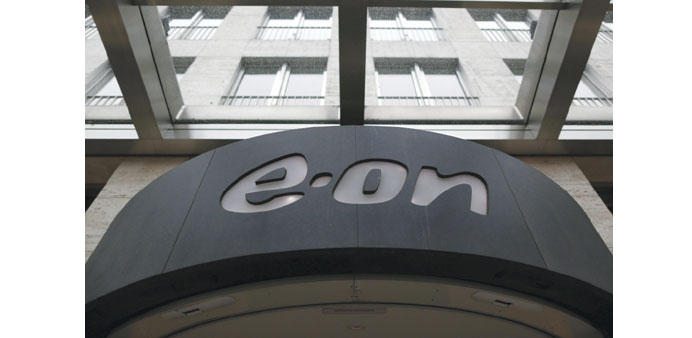Germany’s biggest utility E.ON announced an €8.3bn ($8.9bn) write-down on the value of its power plants and oil and gas business yesterday, showing the challenges facing the assets ahead of their planned spin-off next year.
The write-down, equivalent to nearly half of E.ON’s entire stock market value, drove the company to its biggest quarterly net loss since its creation in 2000.
E.ON posted a third-quarter net loss of €7.2bn, the biggest since its creation from the merger of VEBA and VIAG in 2000, and giving a loss of 6.1bn for the first nine months of the year.
Germany’s traditional power companies have been hammered by a surge in renewable energy, plunging wholesale electricity prices and the country’s plans to abandon nuclear power.
As a response, E.ON last year announced plans to spin off its energy trading, oil and gas activities and most of its power generation next year into a new company called Uniper, to focus on renewables, networks and services - the only European utility to take such a drastic step so far.
“The massive impairments booked by the group during this quarter ... clearly confirm a massive change in mid- to long-term assumptions,” Bryan Garnier analyst Xavier Caroen wrote in a note to clients, keeping a “neutral” rating on E.ON shares.
“We remain cautious and continue to believe it is too early at this stage to play the ‘recovery phase’ on E.ON.”
“Investors are hoping that the mega-writedown spells the end for the purge ahead of the spin-off,” a trader said. “After yesterday’s losses it’s all about looking ahead today.”
Apart from the industry crisis, E.ON has also been hit by concerns whether it has set aside enough money to dismantle its German nuclear plants.
The company had originally hoped to include those plants in Uniper, but dropped that plan in September due to political resistance, leading some industry watchers to question the whole spin-off plan, particularly given E.ON’s lowly market valuation.
The stock is down more than a third since the break-up was announced last November, lagging a 4.5% fall in the STOXX Europe 600 Utilities Index. At 4.9 times, its enterprise value to core earnings (EBITDA) multiple is more than a fifth below the industry average.

